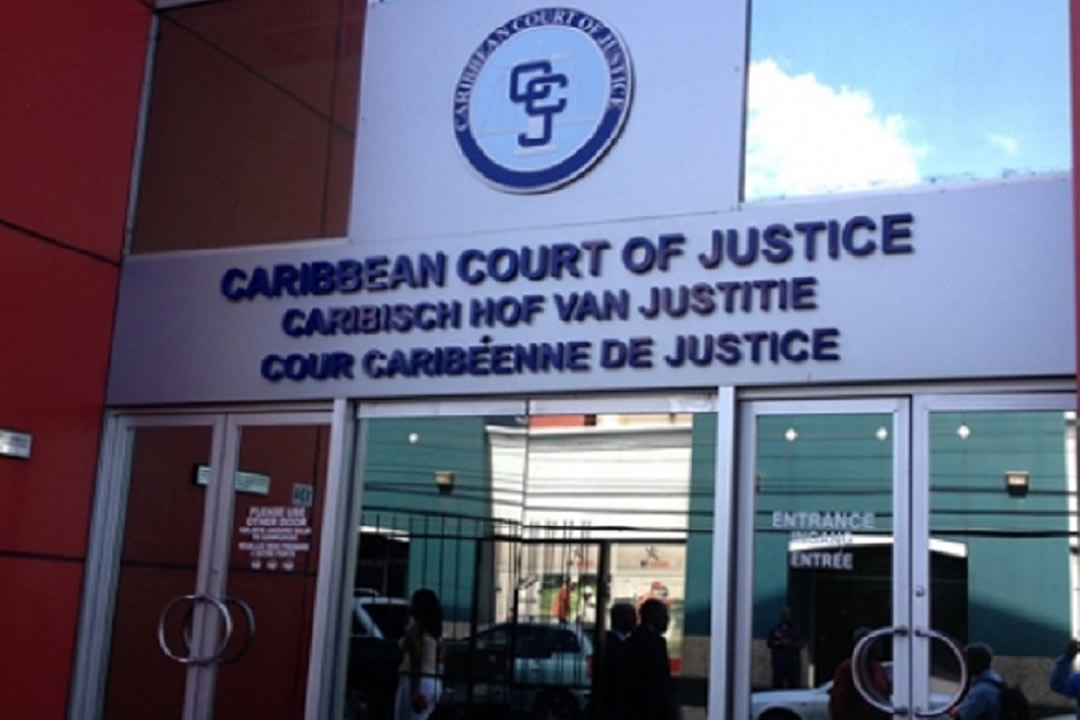 The Caribbean Court of Justice on December 7th, 2017 delivered judgments in GYCV2017/007, Blairmont Rice Investments Inc v Kayman Sankar, Kayman Sankar Investments Limited and Beni Sankar and GYCV2017/009, Wayne Vieira v Guyana Geology and Mines Commission cases.
The Caribbean Court of Justice on December 7th, 2017 delivered judgments in GYCV2017/007, Blairmont Rice Investments Inc v Kayman Sankar, Kayman Sankar Investments Limited and Beni Sankar and GYCV2017/009, Wayne Vieira v Guyana Geology and Mines Commission cases.
The Trinidad & Tobago based court ordered an urgent hearing in Guyana’s court of appeal in the case of Blairmont Rice Investment Inc. v Kayman Sankar Company Ltd, Kayman Sankar Investment Ltd, and Beni Sankar.
The Court refused an application for special leave to appeal to the CCJ. In a motion filed in the Court of Appeal of Guyana on February 9, 2017, Blairmont alleged that it sought an order for the matter to be returned to the High Court of Guyana for retrial because the trial judge had failed to provide written reasons for his decisions before retiring from office. In its application, the company alleged that the Court of Appeal of Guyana had refused its request and, instead, ordered that the Record of Appeal be settled and that the appeal should proceed.
In refusing the application for special leave, the CCJ ordered that the hearing to determine Blairmont’s substantive appeal was deemed fit for urgent hearing by Guyana’s Court of Appeal. The Court of Appeal has been ordered to notify the CCJ of the hearing date by 21 December 2017.
The CCJ rejected Blairmont’s application for special leave because they did not seek an order for retrial in the motion filed on 9 February 2017 but actually sought to progress Blairmont’s substantive appeal by having the Court of Appeal hear the appeal in the light of the availability of the pleadings, exhibits, affidavits, the trial judge’s notes of evidence and his detailed order, despite the absence of any written reasons for his decision.
In the case of Wayne Vieira v Guyana Geology and Mines Commission, the Caribbean Court of Justice (CCJ) today determined that the Guyana Geology and Mines Commission had no authority to issue a Cease Work Order (CWO) directing Mr. Vieira to cease all work under his mining permits because he had no agreement with the Chinese Landing/Tassawini Village Council.
Allegedly unknown to the Commission, Mr. Vieira had made several attempts since 2009 to secure a new agreement with the Village Council. His efforts, which included engaging the Prime Minister, who was the Minister responsible for mines and minerals, proved futile. The CWO was issued on 26 November 2010 under the Mining Regulations because of the absence of an agreement with the Village Council, as was required under the Amerindian law. According to the CWO, the Mines Officer deemed the stoppage to be ‘absolutely necessary’ for the maintenance of the public peace or for the protection of the State’s, or private persons, rights.

